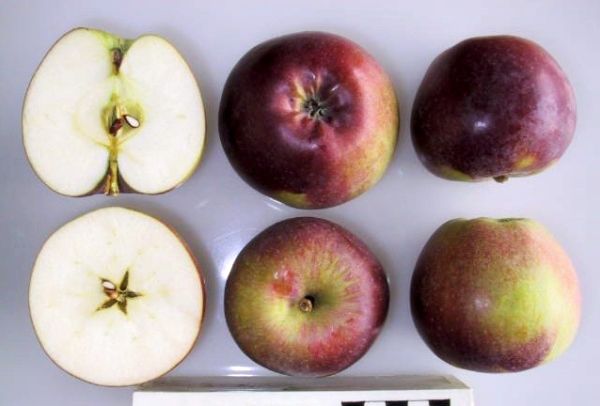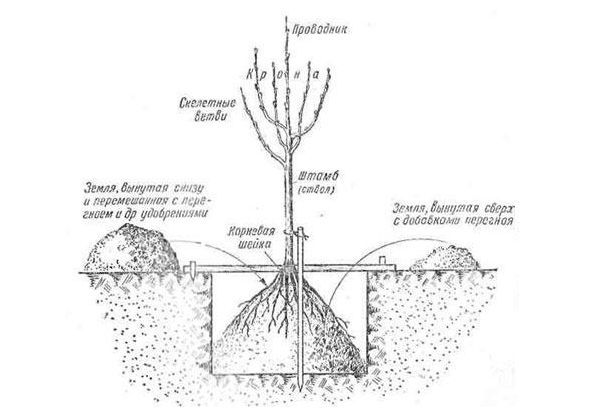Review of the high-yielding apple variety Spartan
Content
General information about the variety
The variety appeared in 1926 thanks to the efforts of Canadian breeders. The varieties Pepin Newtown and Macintosh were taken as the basis. The first seedlings were brought to the territory of modern Russia only in the 1980s.
The apple tree feels great in the central regions on chernozem soils. The fruits are distinguished by excellent commercial qualities, tolerate long-term transportation well, and are famous for their excellent taste.
Video "How to cut an apple tree with high quality"
In this video, an expert will tell you how to properly prune an apple tree in the garden.
Description and characteristics
Trees prefer regions with a temperate climate, where there are no too cold winters and a low level of humidity. Apple trees need careful preparation for wintering, otherwise they may die from the cold. A young tree can give about 25 kg of fruits, more mature plants give up to 80 kg of apples.
Crown width and height
The trees grow quickly after planting. At the same time, apple trees do not differ in height - this is a medium-sized variety. Leaves of a dark green shade, small, with a glossy surface.
The branches grow at a 70 ° angle to the trunk. The crown is lush, the variety is prone to the formation of additional shoots, so regular pruning should not be neglected.
Fruiting and taste
The description of the fruits should start with their unusual purple color, which is the result of the Canadian origin of the culture. Photos of fruits catch the eye - they are so interesting and attractive.
Apples are distinguished by the correct shape: rounded, slightly flattened. Unripe fruits have a yellow color that changes to intense purple as they ripen. The surface of the apples is covered with a light waxy coating.
Fruits are medium-sized - each weighs about 140-180 g. The taste is sweet and juicy, with a wonderful aroma and dense pulp structure. Fruiting occurs no earlier than 3 years after planting.
Self-fertility
Gardeners' reviews indicate that the variety is self-fertile, and bears fruit effectively without the presence of other apple trees in the neighborhood. Moreover, Spartan often acts as a pollinator for other varieties.
Frost resistance
The culture is susceptible even to spring frosts, and even more so to severe frosts. Even in the conditions of the middle strip and the Moscow region, trees need a mandatory shelter for the winter.
Basic rootstocks
Apple trees of dwarf, semi-dwarf and even columnar varieties can be used as rootstocks for the variety. Of the dwarf varieties, Budakovsky's red-leaved paradise is most often used - such an apple tree is resistant to low temperatures, gives large fruits if the gardener does not neglect feeding. Another plus is the small height of the tree: it reaches an average of 2 m, which greatly simplifies the care of the apple tree.
The semi-dwarf rootstock for the variety was bred by the same breeder Budakovsky. The variety is distinguished by good indicators of frost and drought resistance, consistently high yields and a well-developed root system.
Spartan on columnar rootstocks has a straight stem that can withstand a significant load. Such trees do not require pruning and are characterized by resistance to extreme growing conditions and numerous diseases.
Growing rules
It is better to plant trees in areas with fertile soil, where there is no nearby groundwater. The place should be sunny, then the yield indicators will not suffer. Autumn and spring planting is allowed. Planting holes are formed 50 * 100 cm in size, filled with fertile soil with fertilizers: a mixture of potassium, superphosphate, ash and rotted manure. The holes are formed about 3 m from each other.
In summer, trees need additional watering - at least 2 times a week, using the rain method. In order for the roots to be saturated with oxygen, the trunk circle should be loosened regularly.
Advantages and disadvantages
Spartan bears fruit every year, and gives a rich harvest if the trees are properly cared for. The fruits have excellent taste, are stored for a long time, and are well transported.
Trees are not resistant to low temperatures, they need an additional winter shelter, they are prone to crushing fruits due to the lack of timely pruning.



